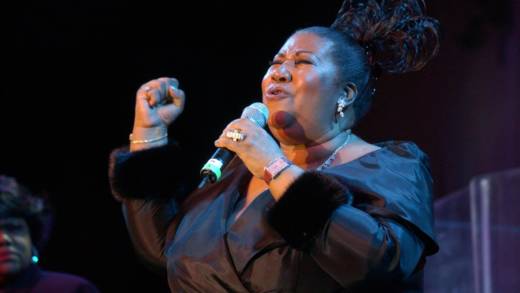Aretha Franklin, the queen of soul and 20th century pop titan who died Thursday at home in Detroit, had a special connection to the Bay Area’s radical history.
Franklin, whose “Respect” became a civil-rights anthem, connected with the Black Power movement in the Bay Area. In a 1971 Jet magazine interview, she offered to pay the bail of Angela Davis, then imprisoned after eluding arrest for alleged ties to a courtroom escape-turned-shootout in Marin.
“Angela Davis must go free,” Franklin said. “Black people will be free. I’ve been locked up… and I know you got to disturb the peace when you can’t get no peace. Jail is hell to be in. I’m going to see her free if there is any justice in our courts, not because I believe in communism, but because she’s a black woman and she wants freedom for black people. I have the money; I got it from black people.”
Franklin noted that her father, the preacher C.L. Franklin, did not approve of her position. “Well, I respect him, of course,” she said, “but I’m going to stick by my beliefs. Angela Davis must go free. Black people will be free.”
Aretha Franklin in a December 1970 issue of Jet Magazine, on why she was willing to post bond for Angela Davis. pic.twitter.com/UN7at4MiyD
— Jacobin (@jacobinmag) August 16, 2018
The next year, Franklin wrote a letter to Black Panther Party Minister of Culture Emory Douglas, expressing her regret that due to timing issues, she couldn’t appear at a fundraiser for the Oakland-headquartered organization. “I love what you are doing in the community, and I am looking forward to meeting all of you,” she wrote.


